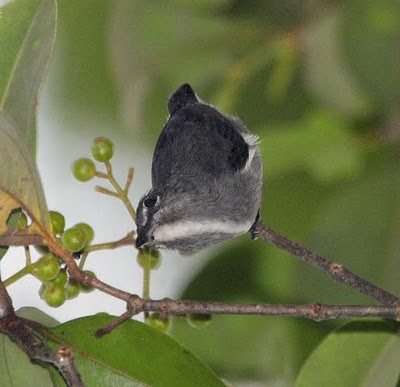Why weekly Twitter-links?
- Twitter can be notoriously difficult to search for specific things that you read that you like. So if you instead re-tweet and have a weekly summery, this works essentially as a book mark.
- Twitter Tools WordPress app automatically makes this summery for you – in an unedited list form.
- I chose to edit my list that is published every Monday in a more accessible form and place the tweets into categories and delete the personal updates that don’t contain links. Sorry for not having done this for a while with previous deliveries the last couple of months.
- It will also load my blog with keywords, which may help Search Engines find my blog.
- These posts don’t get a lot of readers, but I still think it is worthwhile to post them here.
Here is the edited version of my Twitter links the last week. Enjoy!! Hope to go back to edit some of the earlier editions if I can find some time for it.
Peru birding and news from Kolibri Expedions.
- Looks like we shall arrange a spring break 8 days Satipo road and Carpish trip after all. We got 3 people so far…. https://bit.ly/dy5FIb
- Short Marvelous Spatuletail, Abra Patricia, White-winged Guan and Peruvian Plantcutter trip comfirmed for May 7…. https://bit.ly/dn0rXy
Conservation
- State of the Birds 2010 https://bit.ly/acyQWg
- Answers Found to Pelican Mass Stranding Mystery https://bit.ly/dqSmrG
- Spoon-billed Sandpiper – some good news https://bit.ly/a3F6UO
- Endangered and Threatened Species That are Apparently Delicious. Giant Salamander Protection Internat. https://bit.ly/91q1xE
The original post is found here! - England’s lost and threatened species | Environment | guardiancouk: Find out which species are under threat in En… https://bit.ly/dlDFxe
- Autorities Cracking Down on Finch Fighting https://bit.ly/b4dO5
- Proposed Legislation Would Prevent Millions of Bird Deaths https://bit.ly/9Ox5Jf
- New Report Reveals Bird Conservation Efforts Are Critical in the Face of Climate Change https://bit.ly/cv3rLR
- Trade meet on threatened species to kick off The vast majority of the 33500 species covered by CITES… https://bit.ly/dBJId6 New CITES conference.
Birding in North America
- Common Raven Nest in Queens, NY https://bit.ly/aiOsB3
- Birding Across Queens https://bit.ly/dtBEYI
- Ring-necked Pheasant Phasianus colchicus in Kissena Corridor Park, Queens, NY https://bit.ly/dzsvy4
- Yellow-rumped Warblers on Their Way Out https://bit.ly/beFvKm
- Welcome back Myrtle Warbler https://bit.ly/bAxOI7
- Steve Martin, Jack Black & Owen Wilson in Big Year – a birding movie? https://bit.ly/dyKaMg
- Answers to the Flying Feeder Birds Diabolical Quiz https://bit.ly/96oIeI
- Birding Film at Going Green Film Festival https://bit.ly/a2Y4TC
- List Luster Lost https://bit.ly/bnJoXH
Birding UK and Europe
- If this is Spring, why am I so cold? https://bit.ly/cpgaMc
Birding rest of the world
- Patrick’s Puerto Rican Adventure https://bit.ly/ba6xJ9 #
- Brazilian IBAs Part II https://bit.ly/9wSfso #
- Win a Birding Trip to Jamaica! https://bit.ly/dAh4CY #
- Caribbean’s first Shorebird Reserve designated https://bit.ly/9V6gkH
Social Media
- RT @TechCrunch Why Google Pushed Buzz Out The Door Before It Was Ready https://is.gd/9qytP
- 5 Ways to Use Google Wave for Business https://bit.ly/a9dL1t /cc @feedly
- Why Google Buzz Should Be Your Blog https://bit.ly/ce0Z9a via @AddToAny
- Using the new MrTweet to discover great new people and recommend awesome friends! https://mrtweet.com?v=21
- You may not be Rock star all the time, but you could be for 5 minutes RT @ThisIsSethsBlog You rock https://bit.ly/9oMNL8
- Google Buzz for birders https://bit.ly/9kRpoD Far superior to Twitter?
Non-birding links
- Iron Man 2 Trailer Hits YouTube https://bit.ly/bM94gw via Mashable
- RT: @Gr8RedApe Orangutans communicate through dense jungle using various techniques: https://bit.ly/dBwqWh
- Sex-hibition of Peruvian Moche ceramics in Paris https://bit.ly/bRpalg 2000 year old “porn”
Powered by Twitter Tools

